“No one should be denied their freedom to belong where they were raised.”
Paterson Joseph
Wilderness: In Search of Belonging traces my journey growing up as a dual heritage child in a white family in predominantly white, rural Britain—a place where I never quite fit in, and my sense of belonging always felt out of reach.
Now, as an adult, with my husband and daughter, I have moved to a remote part of Somerset to begin a mini conservation project. This is my story of our rewilding adventure, an exploration of how nature can help us heal, and a deepening understanding of what it means to truly belong.
Wilderness is for paid members, but the first chapter is free to read.
Every so often, in Wilderness, I’ll post a free Wild Note, like this one.
The first chapter in my nature memoir, Wilderness: In Search of Belonging, has just been published on WritersMosaic!
You can also hear me reading chapter 1 too if you’d like to listen rather than read.
Chapter 1
I have a couple of photographs of me that I love. They were taken when I lived in Nigeria and I was two-years-old.
In one I’m wearing a dress only just long enough to cover my bottom, my baby hair neat and straight, in two tiny bunches, no sign of the frizz and the curl that would later frustrate my mother. I’m next to a row of African marigolds with my arm around my dog Timmy who, seated, is almost the same height as me.
The other picture is of me and two men. The man holding me is dark-skinned, with a large nose and kind eyes. He’s wearing a white, sleeveless shirt. His hair is cut short to his scalp, but you can still see the Afro kink.
The other man, solid, white, beaming, his hair as black as boot polish, is in a cassock with a collar.
A Catholic priest and a Muslim mathematician.
My two fathers. I look rather cross in the photo.
When I was growing up, a brown child raised by a white family, the only non-white person everywhere I lived, every school I went to, my ceaseless question was: Where do I belong? I didn’t have a place I could point to and say, there, that’s where I’m from.
My step-father quoted Virgina Woolf to me: “As a woman, I have no country. As a woman, I want no country. As a woman, my country is the whole world.”
He spoke eloquently and passionately of Irish writers like James Joyce and William Butler Yeats who felt disenfranchised, standing apart from their own land and peoples and, as a result of their perceived outsider status, became better writers.
But being a citizen of the world, whilst possibly helping one become a better writer, does not make one happy.
Somerset - July
We stand together in a row in the field - my husband, Jaimie, our daughter, Jasmine and I, like some kind of sad and truncated von Trapp family, and look at what we’ve done.
The house we’ve bought is sunk into the bottom of the valley; it’s long and low and engulfed by a sinuous wisteria and a vigorous kiwi. It’s all tiny rooms, narrow windows, dark shadows.
Jasmine and the local children, bonding in that instantaneous way only children can, have already found a secret passage from the back of a cupboard in the kitchen leading into the hall. The kiwi is muscular - you can almost sense it squeezing into our new home - with thick boughs and twisted tendrils wrapping themselves around the empty house like a fairy-tale briar, squeezing the life out of it.
We think we might have to hack our way in like a fairytale prince — and indeed, later on, this is exactly what we will do, carrying our sleeping daughter in her pyjamas as we slash our way through the growth engulfing the house, as scale the rocky hillside before taking a treacherous passage over a decaying wooden bridge so we can clamber in via a second-floor window.
But that’s not what we’re looking at right now. We’ve been so focused on buying this house and our ideas for renovating it - transforming it into a modern, light-filled, glass-walled and cedar-clad box - our plans outlined on a napkin in the local pub over a pint with an architect friend - that we had forgotten something.
We had dreamt of fresh air away from inner city Bristol, of space and peace, of community and kindness, long walks and wilderness. Now, standing in an overrun field in our waterproofs in the rain, we realise our error.
The house has come with added extras. The valley is steep-sided and we now own the land on either side. It’s bisected by a bridlepath - the West Mendip Way - and a stream. On one side we have a large, wide garden stretched along the valley bottom, followed by a small field and stables. Opposite, is another, larger field, with two woods at each end.
The field and the trees form an island, completely encircled by a footpath. The plans had confused our mortgage brokers for they showed not one property - the one we were intent on buying - but ten.
We are surrounded by a ghost village. There are the remnants of another nine houses on our land, some little more than rocky outcrops in the field, others two storeys high, parts of the walls, doors, and fireplaces remaining. There is a lime kiln at one end. We can feel the history of the place running so very close to the surface, no more than a spade’s depth below the surface, like raised veins beneath skin.
The previous owners had ponies. Now, without the horses, but enriched by years of manure, the field has bolted. The grass is thick and lush, rank and choked with nettles and covered with ferns a metre high. Water drips from their fronds and our hoods. Our wellies are submerged in dock leaves that lap across our feet like a green wave. We have gone back in time: we expect giant dragonflies to helicopter past, pterosaurs to swoop overhead. The woods are darkly claustrophobic: a rotten fence separates them from the field but, in any case, like the century-old briar in Sleeping Beauty, they’re so overgrown they’re impenetrable.
Jaimie and I look at each other.
What have we done?
I dreamed of being a novelist and a zoologist when I was five-years-old. We were living in Nigeria. I remember standing at the bottom of the garden where it had been left untended and was quickly reverting to bush.
The grass is taller than me. It is whirring and thrumming, chirping and rustling, alive with the chitinous rasp of mandibles and wings, pincers and piercers and probes. I shut my eyes and tell myself to walk in, to force my way through the thicket to be amongst the insects.
I need to do it.
We live in Nigeria and at night I sleep under a mosquito net. I have bad dreams about giant spiders crawling across the net, trying to get in.
I’m five-years-old. I already know that I want to be a novelist and a zoologist. But I can’t. I can’t cross into that alien insect world.
I’m not brave enough.
One of the main reasons for moving out of the city was to give our daughter an idyllic life in the countryside - and to get her into a good school. We’ve deliberately moved to this particular part of Somerset because my step-father, Jasmine’s grandfather, founded a department of Peace Studies at the local school. It’s housed in two yurts in a field, which is named after him - the James O’Connell Peace Field.
I don’t think it’s what he expected. He died just before it opened. I gave the key note speech wearing a pink dress and gold converse in a tent in a field and my mum cut the ribbon across the muddy track leading to the yurts, looking cross and confused. Jasmine, then four, picked clover and buttercups and stuck them on a cardboard crown. I imagine my Dad would have raised his eyebrows and smiled.
Where better for Jasmine to be educated (although maybe not in the field itself)? She doesn’t quite see it that way. Worse, she tells us how unhappy she is. She doesn’t want to leave her friends, her primary school, the house she was born in, and, she says, there are way too many bugs.
We spend the summer visiting the house every weekend before the builders are due to start work in the autumn. There is no road to the house itself; instead we have to bump along a stony bridlepath designed for horses. The verges, a froth of cow parsley and red campion, brush against the sides of the car, and the hedge is so high, we are enveloped on all sides. We cross a bridge over the stream and push past the kiwi to get inside.
Jaimie and I do our best to keep on top of the vegetation threatening to swamp the place. We have come from inner city Bristol; our garden is the size of a large dinner table, covered in pale-grey shale with beautiful plants in strategic places and the tiniest of ponds in an old tin bathtub. Jaimie calls it his gin-and-tonic garden: you can hold a glass with one hand and snip stray fronds with the other.
Now we own three acres of land. There is nothing gin-and-tonic like about our new place.
“…they’re a type of parasitic spider that suck blood, wandering round the host to find the softest skin, before cutting a hole and inserting their mouth parts. Their saliva contains anti-coagulants that stop the blood clotting. On no account make them stressed or they will vomit their stomach contents - which are full of bacteria - into your bloodstream…”
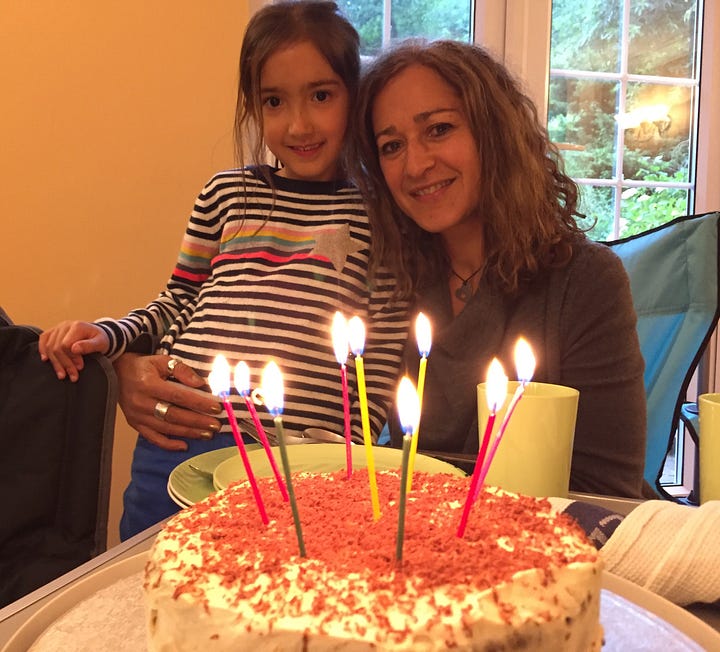
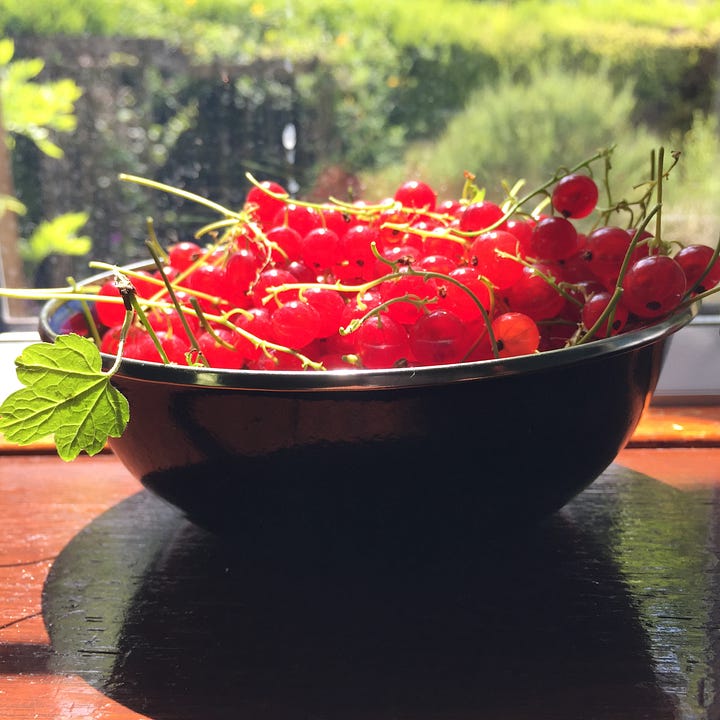
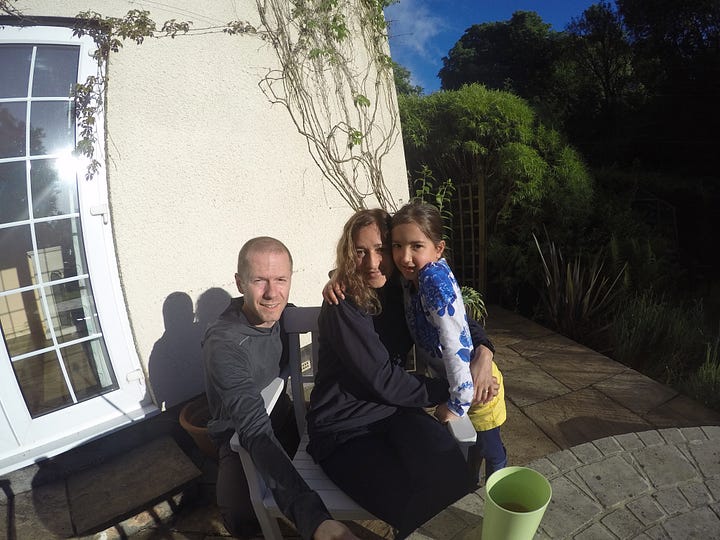
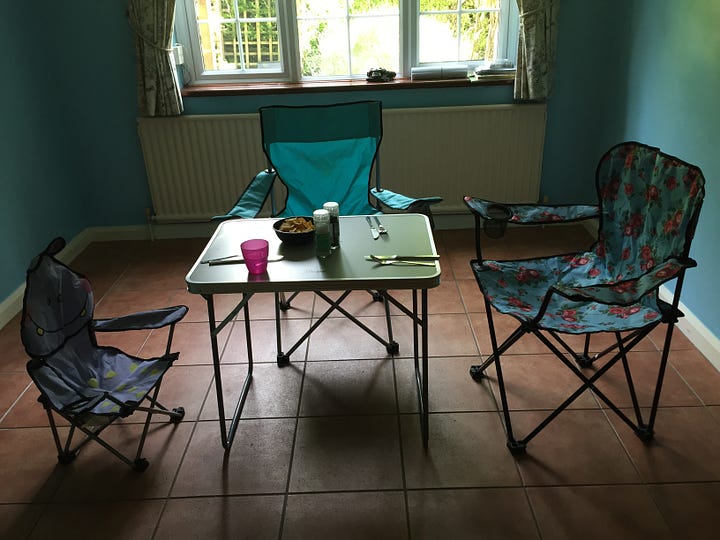
I forage for raspberries and red currants in the overgrown garden and it reminds me of my childhood in Nigeria - a dense wall of canes popping with crickets and ants and green shield bugs. Wild strawberries creep across the ground and crab-spiders and snails, their translucent shells the colour of mint granita, hide beneath the leaves. Jasmine refuses to help me.
We put up camping chairs in the kitchen and cook on a one-ringed burner. We coppice hazel and lay fires in a grand stone fireplace before selling it on eBay.
We celebrate my birthday with coffee cake at the camping table, the room wreathed in white smoke, drinking prosecco out of plastic mugs. We watch the sun sink behind the small-leaved lime: the valley is so steep-sided that at a certain point in the evening the light is funnelled straight through, as if a huge studio light has been turned on and beamed into the garden. We sleep on the floor in one room in the house, the only one that will not be renovated, glamping amongst stacks of cardboard boxes containing our possessions.
“There is nothing gin-and-tonic like about our new place.”
Jasmine is seven-years-old. She refuses to leave this room and spends her time colouring. She’s confused by the idea of playing outside. What would she do? I’m frustrated - Jaimie needs me to help him, but I can’t leave her on her own all the time. I thought she would love spending her weekends in the countryside, splashing in the stream and making up stories set in the wilderness.
But of course, she’s spent her entire life living in the city. The wildest place she has known until now is the urban nature reserve behind our old house: a scrap of land bisected by train tracks, littered with beer cans, fringed with crabbed hawthorns. She has never learnt to play outside.
What’s worse is that I have made her fear of the great outdoors more acute. At the start of the summer, when we were exploring the garden together, Jasmine and I pushed our way through a thorny thicket, and found a hidden path cut into the hillside behind the house. When we emerged, we were covered in ticks. I’d never seen them before and started screaming. We didn’t know how to remove them and I still have scars from where Jaimie gouged them out with the tweezers on his penknife.
Back in Bristol I googled ticks, my zoological interest with these creatures vying with my disgust. I discovered that they’re a type of parasitic spider that suck blood, wandering round the host to find the softest skin, before cutting a hole and inserting their mouth parts. Their saliva contains anti-coagulants that stop the blood clotting. They have to be carefully removed with special tick tweezers; on no account tearing the body in half and leaving the mouth parts behind as we did. Using a lit cigarette or petroleum jelly to remove them makes them stressed and then they vomit their stomach contents - which are full of bacteria - into your bloodstream.
One of the types of bacteria they can carry is Lyme borreliosis, responsible for Lyme disease. It can cause swelling of the joints, nerve problems, difficulty with concentration and memory loss, and end up producing symptoms similar to chronic fatigue syndrome. In this part of Somerset, one in twenty-five ticks carry the bacteria for Lyme Disease. Our two closest neighbours have both had it and spent months dragging themselves through everyday life, zombie-tired, their bones aching.
Over the next few weeks we watch The Walking Dead and I am so anxious I have recurring nightmares of a post-apocalyptic world where we encounter monstrous, blood-sucking ticks as big as Alsatians in the woods behind our new house. In my dreams, I try and fight them off with a pine branch, but they’re impossible to kill. I don’t want to tell my sister about the ticks in case she refuses to bring her family to visit.
I start to think we’ve made a terrible mistake.
Let me know what you think.
The rest of my nature memoir will be for paid subscribers. If you’d like to read on, the next chapters are here:





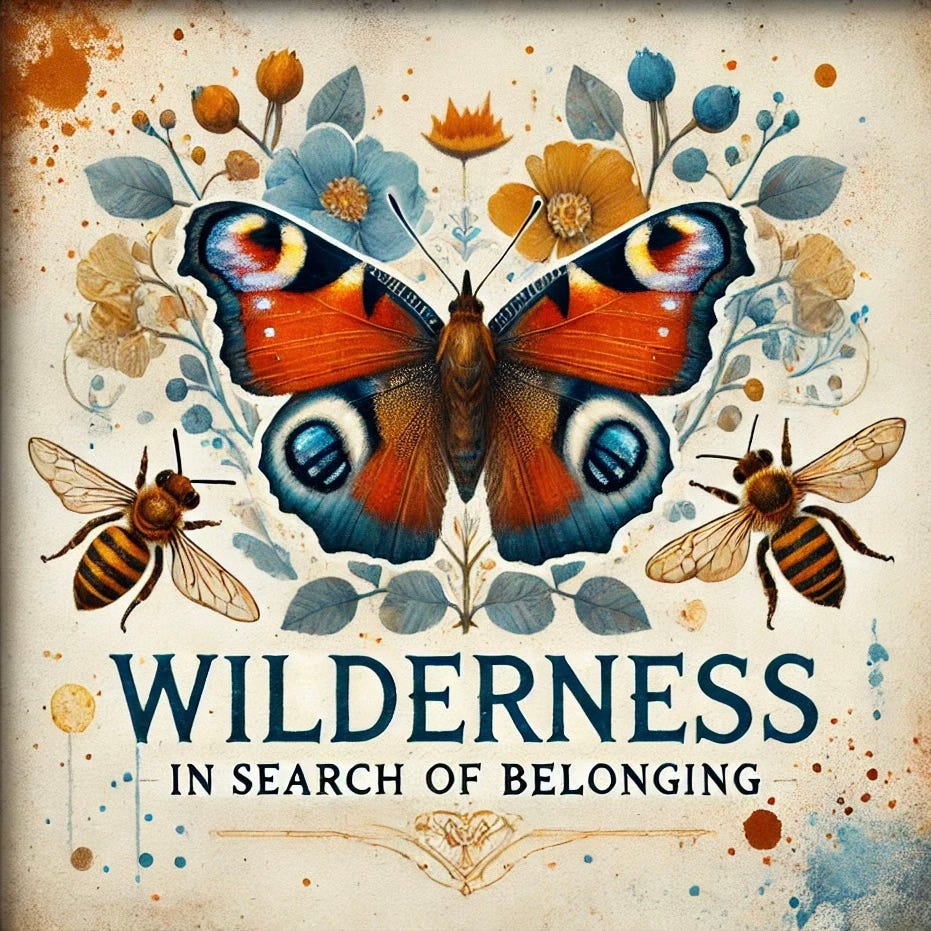

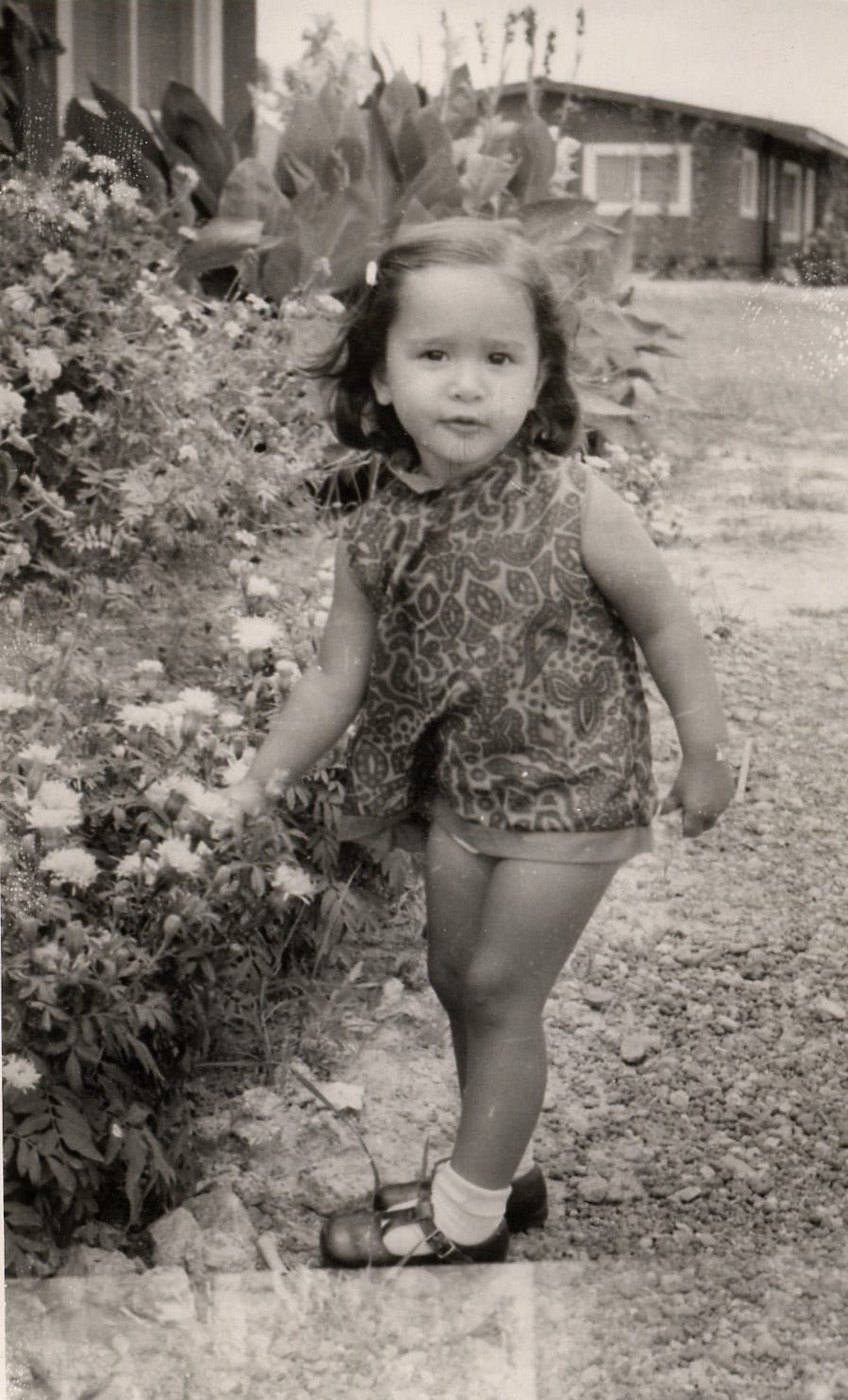
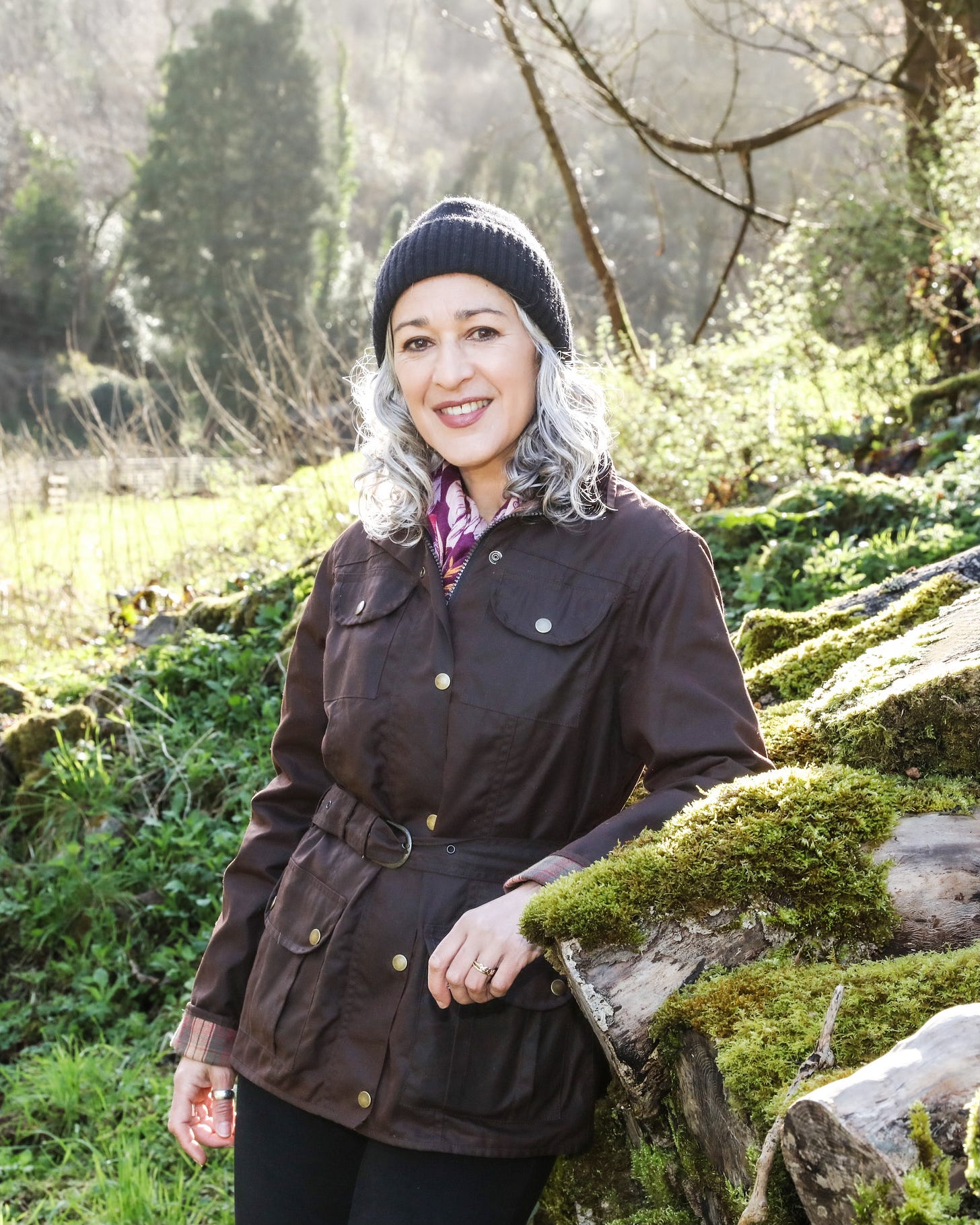

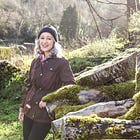
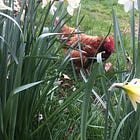
Beautiful!! What a wonderful start and l can't wait to hear the rest of your story. Thank you for sharing xxx💜💜💜
Sparse timesicing of lush, alluring threads - I’m with Claire, hungry for more!